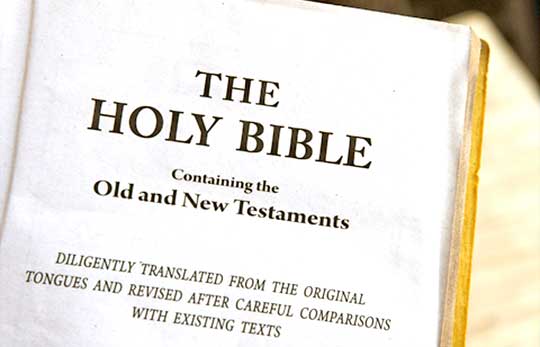We live in a world filled with diverse religious beliefs and interpretations, Christians face a significant challenge when it comes to reconciling the Old Testament and the New Testament. These two sacred texts hold distinct narratives, laws, and teachings that have shaped the foundation of Christianity. But should Christians embrace both testaments? This article aims to shed light on this topic, exploring the content of the Old and New Testaments and the reasons why Christians should embrace them both.
The Old Testament
The Old Testament serves as the rich historical and religious foundation of Christianity. It contains sacred writings that have been cherished for millennia. Consisting of numerous books and various literary genres, the Old Testament recounts the creation of the world, the calling of Israel as a chosen nation, and the story of God’s covenant with His people. It includes books such as Genesis, Exodus, Psalms, Proverbs, Isaiah, and many more.
By recognizing the Old Testament, Christians gain deep insights into the nature of God and His dealings with humanity throughout history. The Old Testament encapsulates fundamental moral principles, prophecies, and laws that lay the groundwork for understanding God’s character and purposes.
The New Testament
The New Testament represents a profound shift in the religious landscape, focusing on the life, ministry, death, and resurrection of Jesus Christ. It consists of the four Gospels (Matthew, Mark, Luke, and John), the Acts of the Apostles, the epistles (letters) written by the apostles, and the Book of Revelation.
The New Testament provides a comprehensive account of Jesus’ teachings, parables, miracles, and the establishment of the Christian Church. It reveals the redemptive plan of salvation, centered on God’s love and forgiveness. The teachings of Jesus reflect a message of compassion, humility, and spiritual transformation, guiding Christians to lead lives aligned with God’s will.
The Harmony in Embracing Both Testaments
While the Old and New Testaments may appear distinct in their content and context, they form an interwoven tapestry of faith. Understanding the significance and harmonizing these two testaments is crucial for Christians. Here are three reasons why Christians should embrace both:
1. Historical and Cultural Context:
The Old Testament bridges the historical and cultural gap, providing valuable context for the coming of Jesus Christ. By studying this, Christians gain insights into the customs, traditions, and prophecies that set the stage for the arrival of the Messiah. The New Testament fulfills the promises and prophecies of the Old, demonstrating the divine coherence and continuity between the two.
2. Moral and Spiritual Guidance:
The Old Testament provides a moral framework that continues to serve as a source of inspiration and guidance for Christians. Though some laws and regulations may no longer directly apply due to the coming of Christ, the underlying principles of justice, compassion, and righteousness remain eternal. The New Testament amplifies this moral foundation, inviting Christians to embody the love of Christ and live in a way that reflects the teachings of both testaments.
3. Transformation and Redemption
The redemptive message of the New Testament cannot be fully appreciated without comprehending the depths from which humanity has been redeemed. The Old Testament repeatedly showcases humanity’s brokenness and God’s relentless pursuit of reconciliation. By embracing both testaments, Christians witness the enduring grace and mercy of God through the stories of Adam and Eve, Noah, Abraham, Moses, David, and others.
Alignment with God’ Will
To believe in both the Old and New Testaments is to honor the breadth and depth of Christian faith. These sacred texts, although distinct, offer a cohesive narrative of God’s love, faithfulness, and redemptive plan. The Old Testament provides historical and cultural context as well as abiding moral principles, while the New Testament centers on the life, ministry, and teachings of Jesus Christ. Embracing both testaments allows Christians to truly grasp the richness of their faith and live transformed lives in alignment with God’s will. By recognizing the unity within this dynamic tapestry of faith, Christians can navigate the complexities of life with wisdom, compassion, and unwavering conviction.
